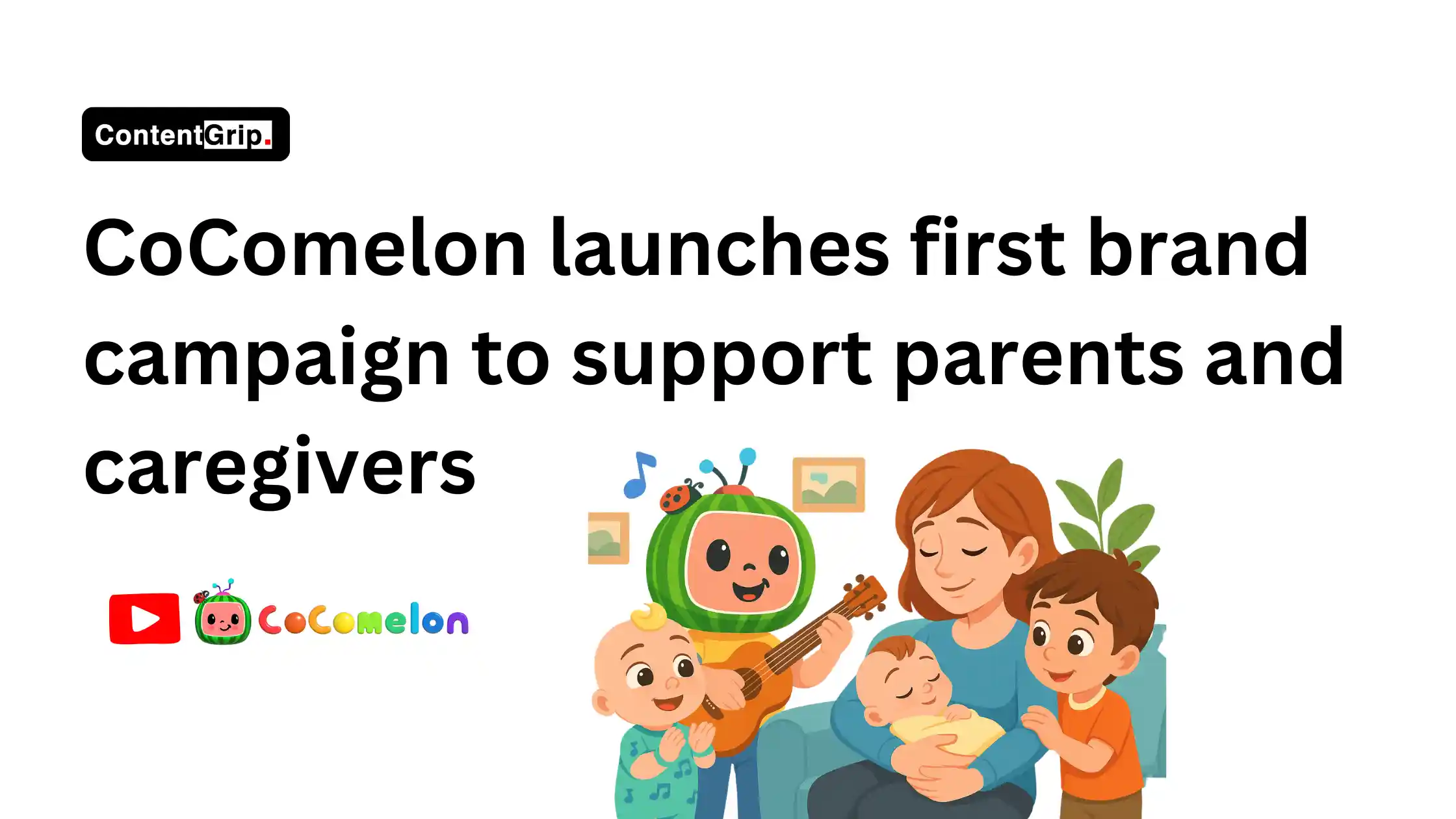CoComelon debuts first brand campaign to support parents and teach a marketing lesson
CoComelon moves beyond the screen, offering real-world support for stressed parents through music, creators, and community programs.

Parenting today often feels like a full-contact sport—and CoComelon knows it.
The kids' entertainment giant just launched “CoComelon Can Help,” its first-ever brand campaign, aiming to ease the pressure on overwhelmed parents and caregivers with the power of music and community support.
This article explores how CoComelon is moving beyond passive entertainment to offer real-world resources for families—and why this approach signals an important shift in how brands should be thinking about content and community building.
Short on time?
Here’s a table of contents for quick access:
- CoComelon's first ad campaign targets parental challenges
- Context: Why the timing matters for family-focused brands
- What marketers should know: Key takeaways for future campaigns

CoComelon's first ad campaign targets parental challenges
The “CoComelon Can Help” campaign centers on a 60-second spot airing across Meta, Instagram, TikTok, and YouTube.
It highlights how families are using songs like “Potty Training Song” and “Yes Yes Bedtime Song” to navigate real-life milestones like potty training, bedtime, and picky eating.
Key campaign elements include:
- CoCo-fessions: A creator-led video series featuring honest parenting moments
- 1-844-TOTLINE: A parenting support hotline offering song-based encouragement
- Gotta Go Zones: Public restroom pop-ups in New York City, Nashville, and Los Angeles
- Curated playlists: Age-specific playlists for YouTube, Pinterest, and Babylist
- Melon Squad: A coalition of local nonprofits and businesses providing tangible support like fridge stocking, playdate kits, and moms' night out packages
By connecting its entertainment content directly to parental pain points, CoComelon is positioning itself not just as a provider of kids’ content, but as an active partner in parenting.
Why the timing matters for family-focused brands
The move comes at a critical time: 41% of parents report feeling too stressed to function most days, according to data shared from the U.S. Surgeon General. Meanwhile, social media continues to flood parents with advice but offers fewer practical tools.
CoComelon, owned by Moonbug Entertainment since 2020, is leaning into this gap. Its songs—originally built to entertain toddlers—are now reframed as functional aids for everyday parenting challenges. This is a sharp shift from passive content consumption to active, purpose-driven brand engagement.
@momchats Our CoCo-fession? We all have secrets. Some are just catchier than others. #cocomelonpartner @CoComelon #cocomeloncanhelp #confession
♬ original sound - momchats
The campaign also aligns with a broader trend: brands like Scotch-Brite, LG Electronics, Carter’s, and Capri-Sun are prioritizing uplifting, supportive messaging amid ongoing economic and political turbulence.
Key takeaways for future campaigns
Here’s what brand strategists and marketers should learn from CoComelon's latest move:
1. Emotional support beats pure entertainment
Parents aren’t just looking for distractions—they’re seeking practical tools and emotional backup. CoComelon’s mix of songs, creator content, and real-world activations shows that brands win when they offer tangible, everyday support.
2. Community programs can boost loyalty
The Melon Squad initiative—partnering with nonprofits and restaurants to provide hands-on family help—is a prime example of community marketing. Marketers should explore partnerships that extend brand value into real-world experiences.
3. Mobile-first strategy is key to reaching millennial and Gen Z parents
By prioritizing TikTok, Instagram, and YouTube for campaign distribution—and launching mobile-accessible support like the 1-844-TOTLINE—CoComelon smartly meets today’s parents where they already live online.
4. Data-driven content updates are the new normal
CoComelon's decision to refresh songs like “Yes Yes Bedtime Song” and “Yes Yes Vegetables” based on YouTube viewership metrics (1.7B and 3.3B views, respectively) shows how brands should let audience behavior guide content development—not guesswork.




